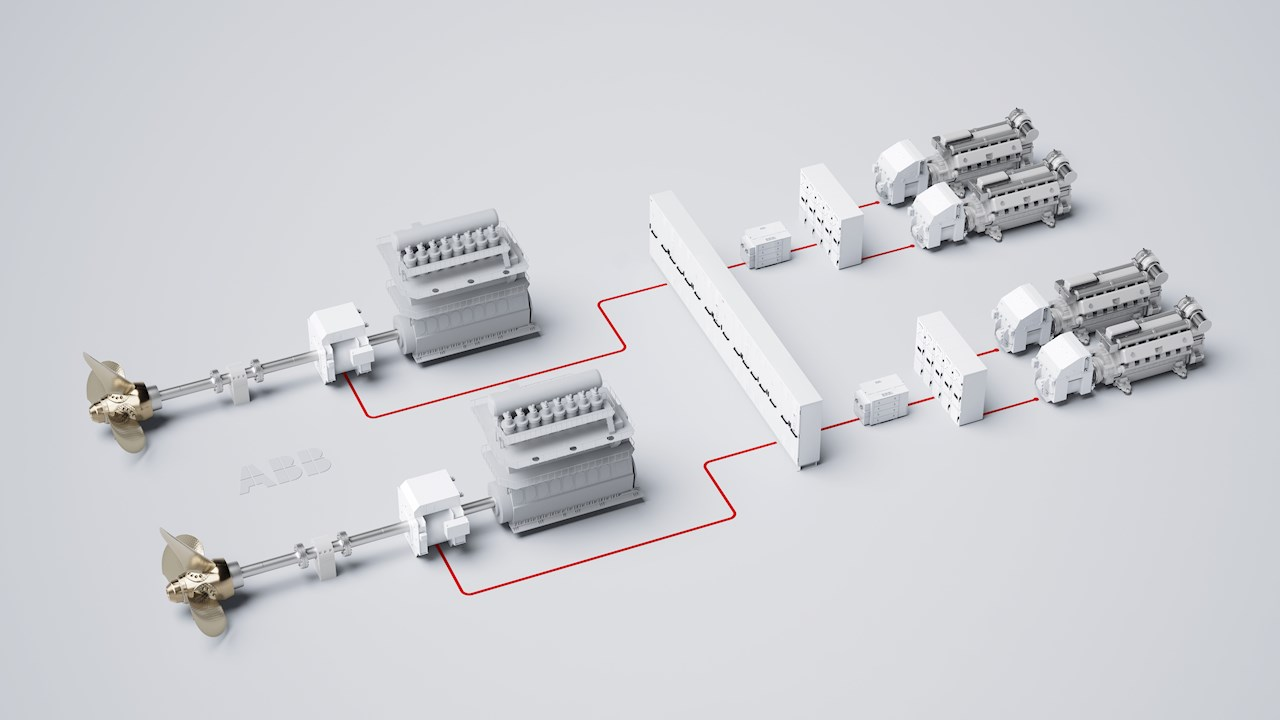ABB has secured orders from shipbuilders in China and South Korea to equip 18 and 12 liquified natural gas (LNG) carriers respectively with permanent magnet shaft generator technology. The ships are due for delivery between 2028 and 2030.

Enhancing operational efficiency by utilizing the power from the main engine, ABB’s permanent magnet shaft generator system improves fuel economy compared to solutions where power is provided by auxiliary engines. By avoiding starting up high-speed fuel intensive auxiliary engines during a voyage, ship operators can achieve significantly greater fuel efficiency. In addition, the permanent magnet shaft generator solution provides better efficiency than either induction or electrically excited synchronous machines, at full and partial load.
According to ABB’s estimation, the company’s permanent magnet shaft generator system can cut fuel costs by up to four percent compared to conventional solutions. When combined with ABB’s advanced ACS880 Converter and Control System, which ensures maximum flexibility and functionality in hybrid applications, the technology can increase fuel efficiency by a further one percent.
By eliminating the excitation unit inside the converter, combined with the compact size of the permanent magnet shaft generator, the system has the potential to deliver up to 20 percent space and weight savings, while its simple design helps to reduce installation and maintenance costs. These gains make a significant difference for ship owners working to increase their competitive advantage in alignment with the International Maritime Organization’s decarbonization targets.
“We are proud to win the largest ever combined orders for our permanent magnet shaft generator systems, with LNG carrier deliveries set for multiple AMEA owners from shipbuilders in China and South Korea,” said Michael Christensen, Global Segment Responsible for Cargo Vessels, ABB Marine & Ports. “These agreements include first-time customers for the permanent magnet shaft generator system, further confirming its benefits across a wide scope of cargo vessel types to serve shipping’s need for the enhanced fuel efficiency that reduces operating costs and helps them to meet decarbonization requirements.”


